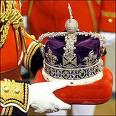Formal Powers of the Crown: New Acts of Parliament: General Election

Some important legislation was passed as part of the "wash up" including:
Constitutional Reform and Governance Act 2010
Crime and Security Act 2010
Children Schools and Families Act 2010 - but see The Independent for what has been (controversially) left out of this Act
Bribery Act 2010
Digital Economy Act 2010 - see here
Flood and Water Management Act 2010- see also Pitt review
Energy Act 2010
Equality Act 2010
Some of these Acts are likely to have lasting repercussions and the "wash up" process has, in some instances, absolutely minimised parliamentary scrutiny of the legislation. It will not be surprising if some of this new law turns out to be very problematical. The Acts make some important constitutional changes; deal with the controversial issue of retention of DNA profiles; aim to improve the U.K.'s "resilience" to flooding (which caused millions of pounds of damage in 2007); and the Digital Economy Act has been particularly attacked as handing the government the power to block internet sites that are "likely to be used for or in connection with an activity that infringes copyright." See Out-Law.Com - "The legislative farce of the Digital Economy Bill". A further problem is that important provisions relating to Personal, Social, Health and Economic (PSHE) Education were included in the Children, Schools and Families Bill but were dropped to enable the remainder of the Act to pass. The proposals, which were controversial in some quarters, would have covered a considerable range of matters such as (a) alcohol, tobacco and other drugs; (b) emotional health and well-being; (c) sex and relationships; (d) nutrition and physical activity; (e) personal finance; (f) individual safety; (g) careers, business and economics.
The general election campaign is now getting into full flow and Political Party Manifestos will be published over the next week. Interestingly, only one incumbent political party in the last 30 years has lost an election - (John Major in 1997). The Labour Party enjoys a statistical advantage since voting for the House of Commons is based on "seats". There is a view that the outcome of the election might be a "hung parliament" - that is a House of Commons in which no party has an outright majority of seats. If that arises, there may be some difficult steps to be taken in the formation of the next government. In those processes the Queen has a role. Hopefully, she would seek to exercise her powers so as to reflect as well as possible the voting of the people. Perhaps to allow for "negotiations" between the parties, the new Parliament will not meet until 20th May.
- A Constitutional Imbroglio ?
The question of what will happen in the event of a further "hung" Parliament continues to be asked. Writing in the Law Society Gazette 4th May, Joshua Rozenberg looks at the possibilities - A constitutional imbroglio. The article also...
- Parliament Dissolved ~ The Fight For Power At Westminster Commences
Today (30th March), Parliament was dissolved. The coalition government remains in place pending the outcome of the General Election on 7th May and it may remain in place for some time beyond the election (see later). At present, the opinion...
- Fixed-term Parliaments Bill ... More Constitutional Tinkering ....
In July 2010, the government introduced a Bill to establish five year fixed term Parliaments - see Fixed-term Parliaments Bill. Is this Bill either desirable or necessary? Under present arrangements, a Parliament has a maximum term of 5 years - Septennial...
- The Court Of Public Opinion: Governmental Possibilities
Harriet Harman MP, speaking in relation to the former Chief Executive of the Royal Bank of Scotland, referred to the "Court of Public Opinion". On 6th May, the people were finally permitted their say in the General Election and their "verdict" will...
- Democracy.
It has been interesting looking around the various blogs and there is obviously considerable comment relating to electoral issues. Perhaps the main one relates to the possibilities if there is a so-called "hung parliament" - that is to say, a House...
